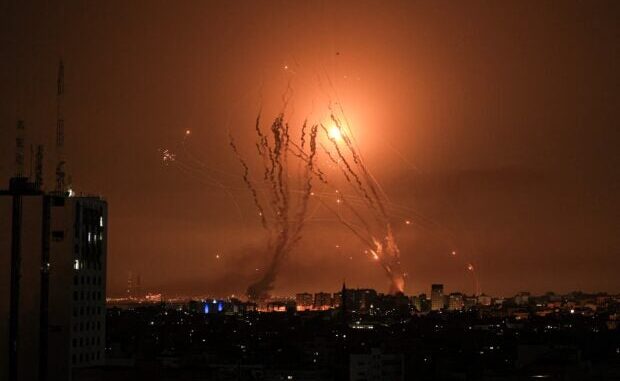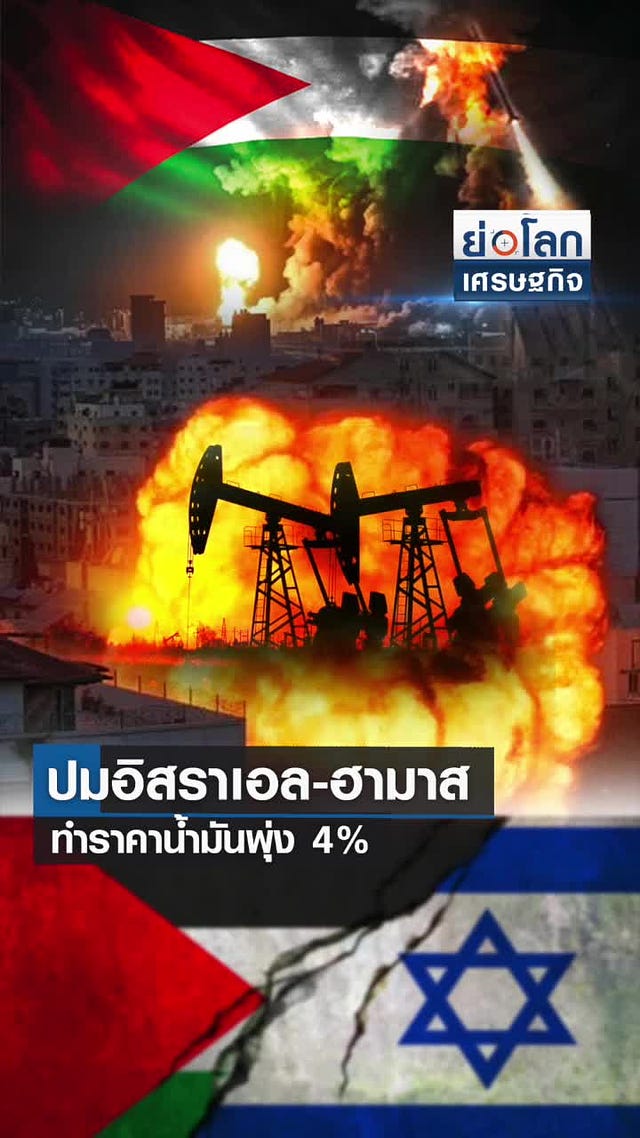
Early Saturday morning, Palestinian militant group Hamas launched its biggest assault on Israel in decades. Thousands of rockets arced from Gaza into Israel; black towers of smoke rose from where they struck.
On motorcycles, trucks, and even paragliders, Palestinian militants darted into Israeli communities.
Reports indicate that more than a hundred Israelis have been killed, and hundreds more have been injured. “We are at war, not in an operation, not in rounds of fighting—at war,” Israeli Prime Minister Benjamin Netanyahu stated, as Israeli forces began air strikes in Gaza in response to Hamas’s assault.
The attacks on Israel this morning are only the beginning of this conflict. Netanyahu has already promised to “exact a huge price,” and will have little interest in backing down from that vow. This is not going to be a small tit-for-tat; the unparalleled nature of the attack won’t allow for it.
Surprise attacks have happened before, and the fact that this one occurred fifty years and one day after the start of the Yom Kippur War is a reference that will be forever etched in the history books.
Oil Industry Targeted in Attacks
Oil surged more than 4 percent after Hamas’ surprise attacks on Israel over the weekend, the broadest and bloodiest in decades, threatened to inflame tensions in the Middle East, home to almost a third of global supply.
How this conflict, and especially an extended one, impacts long-term efforts to build on the Abraham Accords and possibly normalize relations between Israel and Saudi Arabia will be a critical strategic question.
Israel, as is often the case, will have some bandwidth from the international community in the coming days to launch a retaliatory strike. But the longer a war goes and the more carnage there is, the international community will begin to call for all sides to de-escalate.

 Tiktok failed to load.
Tiktok failed to load.
Enable 3rd party cookies or use another browser
The surprise attack and Israel’s declaration of war in response to it have left more than 1,100 dead and raised concerns that a potential broadening of the conflict could draw in the United States and Iran.
Israeli Defence Minister Yoav Gallant on Monday ordered a “complete siege” on the Gaza Strip as the military pounded the Palestinian territory with air strikes.
The Kremlin warned there was a “high risk” of a third party entering the war, after Washington pledged “rock solid” support for Israel and said it was moving warships closer.
The Bank of Israel launched the sale of up to $30 billion in foreign currency reserves, as it sought to curb volatility in its shekel currency.
However, the shekel has since tumbled to a seven-year low against the dollar.
“The shocking attacks in Israel have sent the price of oil soaring, as investors assess the potential for the conflict to disrupt supply in the Middle East, if other countries are drawn in,” said Susannah Streeter, head of money and markets at Hargreaves Lansdown.
“With the Israeli government warning of a long and difficult war, there are concerns that deep and incessant retaliative strikes on Gaza could potentially bring Iran into the conflict and have an impact on the flow of energy in the region.”
The Crude Life has been a trusted voice in energy news and information for over 12 years.
Support those Living The Crude Life! Our authentic message connects with Energy’s Consumer and is rooted deep in Energy Ethics, Digital Diversity and Industry Innovations!

If you have a news release, energy innovation, story idea, community lifestyle feature, guest, music band or show topic requests, email studio(at)thecrudelife(dot)com
About The Crude Life
Award winning interviewer and broadcast journalist Jason Spiess and a team of Content Correspondents engage with the industry’s best thinkers, writers, politicians, business leaders, scientists, entertainers, community leaders, cafe owners and other newsmakers in one-on-one interviews and round table discussions.
The Crude Life has been broadcasting on radio stations since 2011 and posts all updates and interviews on The Crude Life Social Media Network.
Everyday your story is being told by someone. Who is telling your story? Who are you telling your story to?
#thecrudelife promotes a culture of inclusion and respect through interviews, content creation, live events and partnerships that educate, enrich, and empower people to create a positive social environment for all, regardless of age, race, religion, sexual orientation, or physical or intellectual ability.
Spread the word. Support the industry. Share the energy.

